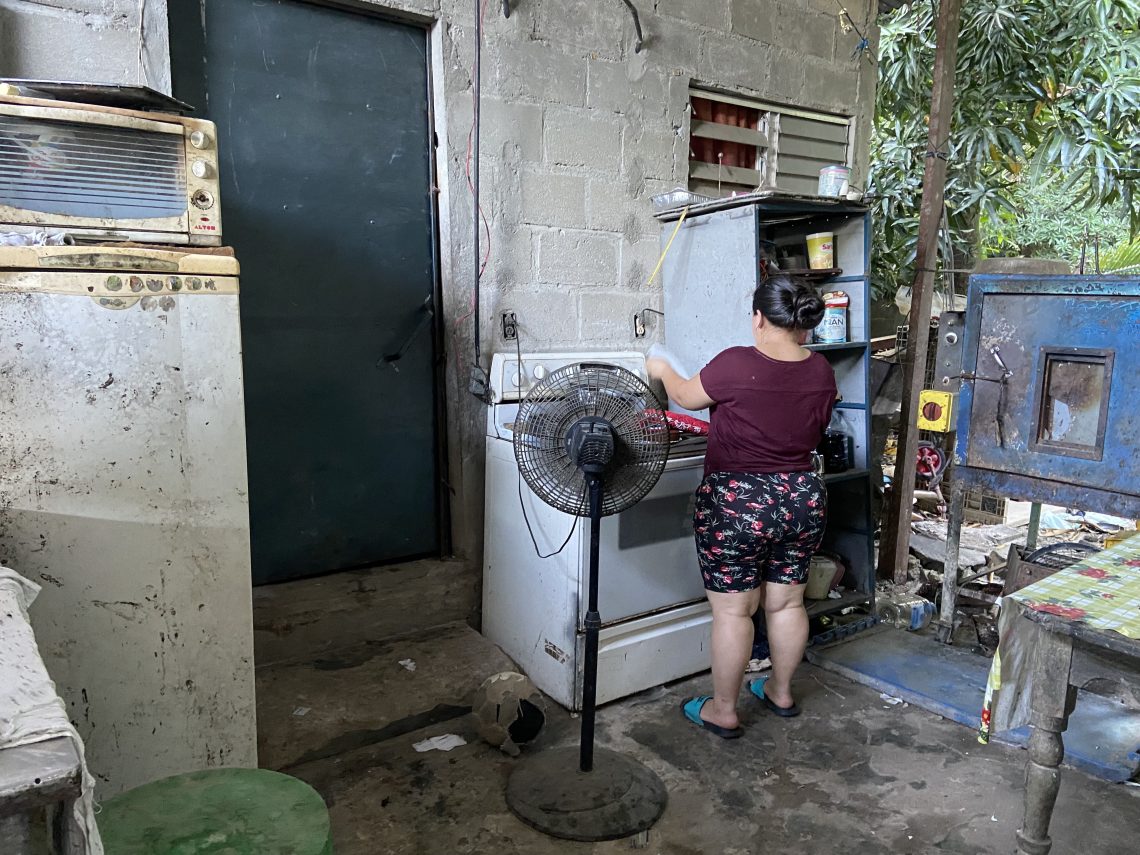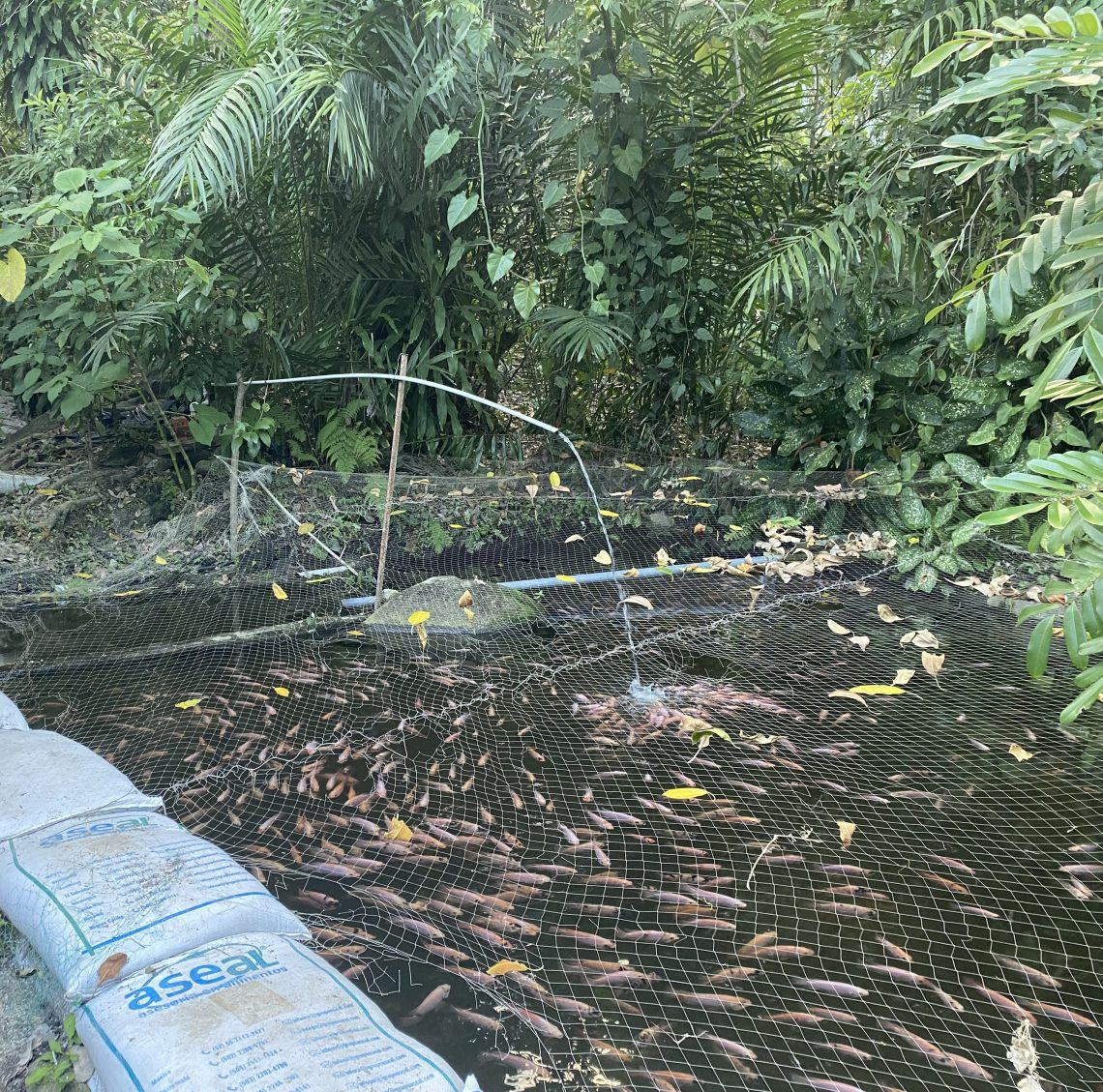Make your 2X MATCHED gift today!
This week only: Every $1 will be matched with $2 to enable women worldwide.
This week only: Every $1 will be matched with $2 to enable women worldwide.
Posted on 07/08/2025
Tucked into a neighborhood just outside of San Pedro Sula, Honduras, Belkis bakes artisanal bread to sell in her community. Belkis lives with her young son and her mother, who is also a baker. Belkis’ home is full of baking supplies, cooking appliances, and the mouthwatering smell of hot banana bread. On top of the refrigerator in the kitchen, she has a small, portable oven that is no longer in use. Belkis now favors two large ovens that allow baking multiple loaves of bread at one time.
Five years ago, Belkis became a client of ODEF Financiera, a financial service provider in Honduras that provides financial services to micro and small businesses, particularly those in the most vulnerable sectors of the informal economy. Inspired by her own mother’s experience working with ODEF, Belkis went to ODEF knowing that “they give a lot to people like [her] who need help with their business.” As a client, Belkis gained access to ODEF’s services to help her manage savings, receive credit, and tap into a whole support system to better run and continually improve her business—and her life. She also participated in the Resilient Life, Resilient Business (RLRB) training that ODEF staff facilitated in her community.
Belkis is just one of more than 10,000 other female entrepreneurs supported by the Reducing Barriers to Women's Economic Empowerment in El Salvador and Honduras Initiative (RBI) under the Women and Girls Empowered (WAGE) program. Wonderfully, Belkis’ story is not unique.
RBI began in 2018 with the intent to advance the status of women by reducing barriers that female entrepreneurs face in accessing financial services and growing their businesses. To better understand those barriers, Grameen Foundation USA, along with the other WAGE Consortium members—American Bar Association Rule of Law Initiative (ABA ROLI), the Center for International Private Enterprise (CIPE), and Search for Common Ground (Search)—launched a comprehensive barrier assessment and gender and inclusion analysis in El Salvador and Honduras that integrated perspectives and lessons in gender-based violence (GBV), women’s peace and security (WPS), and women’s economic empowerment (WEE).

During these analyses, the team found that women in both countries fight an uphill battle when it comes to reaching financial stability, especially as they try to grow their businesses. Women often face persistent threats to their businesses and personal safety due to drug trafficking and gang violence. Gender discrimination is also widespread. Yet the research also revealed the power that women entrepreneurs innately possess, and that enhancing women entrepreneurs’ personal and business assets could increase their resilience and help them feel more confident to overcome adversity and adapt to challenging, and sometimes dangerous, business environments.
With these barriers and opportunities in mind, RBI supported its financial service partners with a Gender, Conflict and Power Dynamics (GCPD) workshop to address unconscious bias and power; a social performance management (SPM)-based Gender Assessment to strengthen policies and institutional practices; expansion of lending to female entrepreneurs through Kiva; support to develop a linkage between the financial service providers and CuéntaNos, a program of the International Rescue Committee which operates across Central America and provides critical information on GBV, legal assistance, citizen protection, and other topics to survivors of GBV and other highly vulnerable people in need; and the development and cascading of the RLRB curriculum to financial services clients. Grameen, ABA ROLI, CIPE, and Search developed the four RLRB modules together—Resilient Person, Resilient Life, Resilient Business, and Growing Business—and integrated the concepts of personal and business finance, business growth, household and business resilience, conflict and stress management, and GBV (also promoting CuéntaNos services). The RLRB trainings were carried out by three financial service providers, ODEF Financiera in Honduras and Credicampo and PADECOMSM Crédito in El Salvador, reaching over 1,500 entrepreneurs, 90% of whom were women.
As entrepreneurs participated, they strengthened their business skills and their confidence. Belkis was no exception. When asked about her participation in RLRB, she shared that she most appreciated the content about calculating and managing her cash flow and promoting her business on social media. With her newfound knowledge, skills, and increased confidence, Belkis has improved her business and has also begun to share some of the concepts and RLRB videos with her mother, who has not yet participated in RLRB trainings. To diversify her income, she built a small fish farming business in her backyard.
In conjunction with the RLRB curriculum, entrepreneurs participating in the RBI project also benefited from financial support through a loan-matching revolving fund administered by Kiva. By December 2021, the project had supported 10,578 women and unlocked over $5 million in capital. This gave the three financial service providers the ability to expand their loan portfolios to more female clients and reach women like Belkis with critical business investment support.

To support thousands more entrepreneurs still using their own figurative portable ovens due to knowledge gaps, systemic barriers, lack of confidence, insufficient capital, etc., the three financial services partners have all begun to integrate RLRB and other elements of RBI permanently into their processes. Given RLRB was developed as open-access and is supported by video sessions as well, the curriculum is expected to scale across Latin America and reach thousands of more female microfinance clients in the years to come. How can future efforts learn from RBI to better serve the needs of female entrepreneurs like Belkis? Here are four potential areas for complementary programming:
Each day Belkis bakes sweet, caramelized bread in her two large ovens–the old portable oven now tucked away. It remains to serve as a reminder to her family of where they started and how far they’ve come. And to those of us working on the RBI project, it has become a symbol of the untapped power of women entrepreneurs in El Salvador and Honduras and the hope that they, too, will one day be able to move forward with confidence and success as they access that small bit of encouragement to show up with their full power.